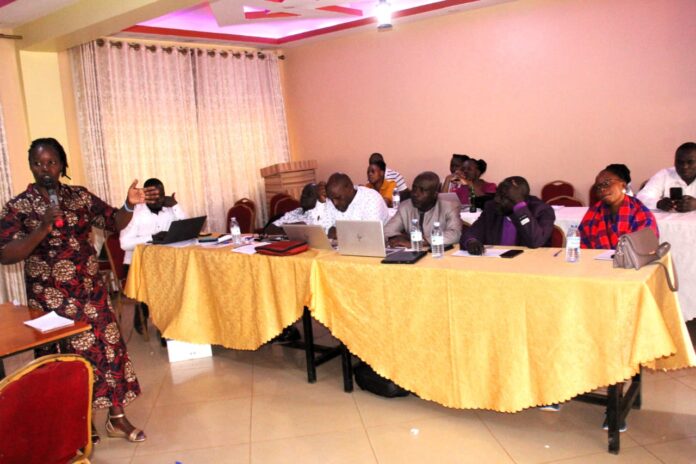The Free Pentecostal Fellowship in Kenya (FPFK) has launched the Linda Mtoto project in Busia County, on both the Kenyan and Ugandan sides, to combat child abuse and protect children’s rights across the porous border region.
Speaking during a stakeholder engagement forum attended by participants from both countries, FPFK Secretary General Bishop John Kitur said the initiative was born out of a growing concern over rising cases of child trafficking, child labor, defilement, and other rights violations.
“We have been running a program on gender-based violence, but along the way, we realized there were rampant cases of child trafficking, child labor, and defilement,” said Bishop Kitur.
“This prompted us to launch the Linda Mtoto program, which advocates for the protection of children’s rights in both Busia, Kenya and Uganda.”
He noted that earlier efforts within Kenya had limited success due to the porous nature of the border, which made it easy for perpetrators to operate across jurisdictions.
“You cannot solve a problem by focusing on one side. Children were being trafficked from Kenya into Uganda. To address this, we are now working with our Ugandan counterparts to close the gaps and ensure perpetrators don’t find refuge on either side,” Kitur explained.
He urged churches and faith-based organizations to continue championing the rights of vulnerable groups, especially children.
“We have brought together government officials from both sides of the border to support our mission. The porous border remains a challenge, but with joint efforts from all stakeholders, we are confident we can protect our children,” he said.
Project coordinator Everline Achieng emphasized the need for community awareness to tackle the widespread abuse of children.
“The challenges faced in Busia, Kenya are the same as those in Busia, Uganda—child labor, early marriage, trafficking, and teenage pregnancies. We are educating parents and community members on children’s rights and the importance of safeguarding them,” she said.
She added that in Kenya, the project has already rolled out an early warning system that enables swift reporting of abuse cases.
“We’ve trained selected community members to use the system. When an alert is raised, it is sent directly to the relevant government officer’s phone for immediate action,” Achieng explained.
A Shared Responsibility
Senior Probation Officer for Busia District in Uganda, Rafael Osacha, welcomed the initiative, saying the two countries share the same challenges and must work collaboratively to address them.
“Working as a team will strengthen our systems and support government efforts. We must partner with state actors to uphold the rights of children,” Osacha said.
He called on parents to take responsibility and actively participate in reporting abuse cases.
“If people don’t report or refer cases, it becomes difficult to address issues like child trafficking, which remains rampant along the border,” he added.
George Osinde from Tororo, Uganda, identified poverty as a root cause of child abuse in the region.
“Economic hardship forces many families to make children work. Some kids are driven into labor by their own desire to survive, and this makes them vulnerable to traffickers. Through the Linda Mtoto project and cross-border collaboration, we can fight and eliminate these abuses,” he said.
The Linda Mtoto initiative will cover a 10-kilometer stretch along the Kenya-Uganda border and focus on protecting children’s rights through empowerment, parental sensitization, and the enforcement of laws in both countries.

